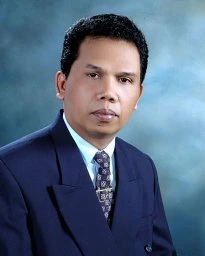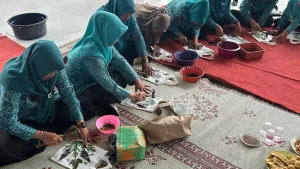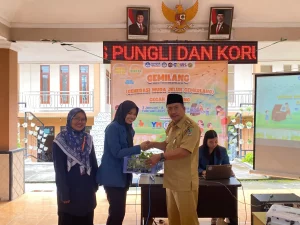Most believed that Indonesia is a heaven on earth. This country has wealthy natural resources (SDA). It is obviously seen from species’ diversity of plants and animals which is also called biodiversity.
Its natural potentials are assets and resources to create respected and advanced Indonesia. Unfortunately, the reality is still different from the expectation. Indonesia is still a developing country with so many unresolved problems. One of the problems is from food security aspect. This crisis of food security should be seriously worked on as we have abundant human resources (SDM).
The people’s expectation on the availability of healthy, safe and affordable food is higher. The limited production materials, equipments’ availability and supervision and production standards from the government made the producers do anything to get profits. They do this to survive against fierce competitions from imported products overflowing the market.
The government through its Health Agency, Agriculture Agency and the Food and Drugs Monitoring Agency (BPOM) with Indonesian Ulema Council (MUI) can’t stand this food crisis. They concerned and contributed by educating community on safe, healthy, good and halal (ASUH) food especially the food from animals.
This ASUH system is aimed to protect the community from misconsumption and dangerous food. In addition, this ASUH system also works as the government’s way to evaluate and control the food insustry and minimizes producers’ violation.
The findings of using pig meat in cow meat distribution, dead chicken meat in the distribution and the usage of preservatives and dangerous chemicals in food are some problems we face nowadays. This system makes the producers panic to meet the requirements and standards.
Other than those problems, Indonesia also has problem on its quality food availability as insecticides and drugs are so often that animals cannot be separated from chemicals. Other causes are poor performance in slaughterhouses and less modern farm management. Poor handling on livestock potential for zoonosis, scarcity on good genetic nutrient source, ineffective waste management in slaughterhouses and farms, market monopoly system, poor food monitoring by BPOM were also considered the causes as well as the low ability to afford animal protein such as cow meat which creates another problem.
This poor condition should be evaluated. Indonesia needs to learn and manage this food crisis. Community stockbreeders with modern technology and management, excellent synergy between breeders, private and state sectors should be improved. Education to community on ASUH food and law enforcement should be conducted at national and regional level. It is aimed to improve the quality and the competitiveness of the domestic products.
The implementation of veterinary public health through Hazard Analysis Critical Control Point (HACCP) and veterinary epidemiology should be throught well and the implementation should be improved by the government. The correct implementation will make food regulation chain and the economy improved in quality, the safety maintained and they also prevented violations from the irresponsible parties.
For the best results, the synergy between the Ministry of Agriculture, Animal Research Center (Puslitnak), Food Security Agency, Indonesian Ulema Council, Ministry of Health, Ministry of Industry and Ministry of Forestry should be reinforced. Strategic roles of each institution which are integrated will be able to achieve the community’s expectation on Indonesian food security.
Other essential things to achieve Indonesian food security are the quality of the human resources, especially the youngsters. The youngsters especially students as the intellectuals and agents of change have great roles in resolving the food problems. They should work and contribute to the community and prove that our own human resources are excellent and still developing. Come on, youngsters! (*)








